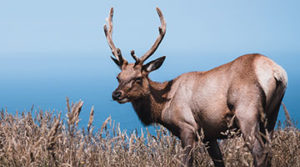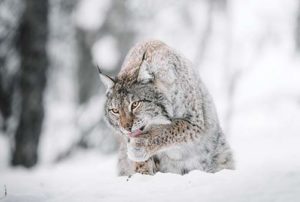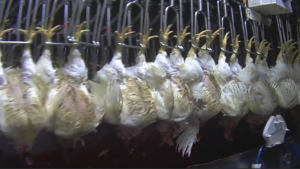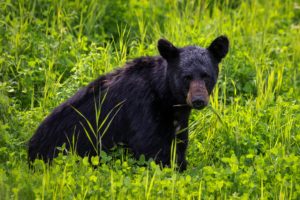The 2021 spring semester for the Animal Law & Policy Clinic was action packed! Even though we still had to conduct our Clinical instruction and supervision virtually due to Covid-19, the students were extremely busy with wide-ranging projects on many fronts.

In June, we filed a lawsuit in federal district court in the Northern District of California on behalf of three individuals and the Animal Legal Defense Fund challenging the National Park Service’s failure to revise the General Management Plan for Tomales Point at Point Reyes National Seashore in northern California. A few days later we filed a motion for a temporary restraining order and preliminary injunction to compel the Park Service to provide food and water to the Tule elk who live there and who are dying of starvation and dehydration because they cannot get past a fence the Park Service maintains across the entire southern border of their habitat. The fence was erected more than 42 years ago to keep the elk from competing with livestock for water and forage in the remainder of the park. Last year, 152 elk—more than a third of the total population—died because they could not get access to food and water on the other side of the fence. And with drought conditions in California worsening, there is every reason to believe the situation will become even more dire.
The case was brought by Clinical Fellow Kate Barnekow and Clinic Director Katherine Meyer, with much help from Clinic Intern Nirva Patel (both a scientist and lawyer). Our litigation has generated much local and national media attention and currently is pending a hearing on our motion for a preliminary injunction.
As a result of the Clinic’s Freedom of Information Act (FOIA) lawsuit against the United States Department of Agriculture, we uncovered a secret policy under which the USDA no longer does full inspections of research facilities each year as required by the Animal Welfare Act. Our discovery of the secret policy became the subject of a major exposé by Science Magazine.
 The revelation is highly relevant to our related case challenging USDA’s failure to revise its standards for the psychological well-being of primates used in research—which is pending before the same federal judge in Maryland. One of the principal justifications the agency gave for denying the Petition to upgrade the standards was the claim that it conducts full inspections of all labs every year—a statement we now know is not true. Recent graduate Brett Richey, who acted as lead counsel in the underlying challenge, uncovered the secret policy when reviewing hundreds of pages of records released in response to our FOIA case. Both the FOIA case and the underlying challenge to the denial of the rulemaking petition are being litigated on behalf of Rise for Animals (formerly New England Anti-Vivisection Society) and the Animal Legal Defense Fund.
The revelation is highly relevant to our related case challenging USDA’s failure to revise its standards for the psychological well-being of primates used in research—which is pending before the same federal judge in Maryland. One of the principal justifications the agency gave for denying the Petition to upgrade the standards was the claim that it conducts full inspections of all labs every year—a statement we now know is not true. Recent graduate Brett Richey, who acted as lead counsel in the underlying challenge, uncovered the secret policy when reviewing hundreds of pages of records released in response to our FOIA case. Both the FOIA case and the underlying challenge to the denial of the rulemaking petition are being litigated on behalf of Rise for Animals (formerly New England Anti-Vivisection Society) and the Animal Legal Defense Fund.
We also drafted a major petition to the US Fish and Wildlife Service (FWS) to end the disparate treatment of captive Canada lynx—a threatened species under the Endangered Species Act (ESA). Under the current regulatory regime, wild members of the species receive full protection under the ESA while captive members receive no protection at all—including all those who end up in road-side zoos and faux “wildlife photograph” operations. The Petition, drafted by 2021 graduate Elizabeth MeLampy and rising 3L Julia O’Neil, requests the FWS to amend the Section 4(d) rule for the lynx to eliminate this exception that currently allows the “take” of captive members of the species. The petition was submitted on behalf of People for the Ethical Treatment of Animals, the Animal Legal Defense Fund, and three sanctuaries that provide refuge to mistreated captive lynx: Big Cat Rescue, the Wildlife Sanctuary, and the Performing Animal Welfare Society.
The Petition, drafted by 2021 graduate Elizabeth MeLampy and rising 3L Julia O’Neil, requests the FWS to amend the Section 4(d) rule for the lynx to eliminate this exception that currently allows the “take” of captive members of the species. The petition was submitted on behalf of People for the Ethical Treatment of Animals, the Animal Legal Defense Fund, and three sanctuaries that provide refuge to mistreated captive lynx: Big Cat Rescue, the Wildlife Sanctuary, and the Performing Animal Welfare Society.
Julia O’Neil and Elizabeth MeLampy again collaborated to draft an amicus brief for the US Court of Appeals for the Ninth Circuit in support of the Center for Biological Diversity’s effort to have the Fish and Wildlife Service revise its grizzly bear Recovery Plan to include expanding habitat that must be protected for the bear, which is listed as threatened under the Endangered Species Act. The amicus brief was drafted on behalf of law professors who specialize in environmental and administrative law to demonstrate that a Recovery Plan qualifies as a “rule” within the meaning of the Administrative Procedure Act and thereby requires the FWS to respond to the Center’s Petition. The case is currently pending. Rising 3L Eric Macomber and recent graduate Susannah Benjamin also worked on a project involving assisting farmers in transitioning from factory farming to sustainable eco-friendly farming.

The Clinic continued to litigate our case in federal court in the Western District of New York concerning a challenge to the USDA’s refusal to promulgate regulations prohibiting the inhumane handling of the more than nine billion chickens and turkeys slaughtered for food each year in this country. We are representing the Animal Welfare Society and Farm Sanctuary in the case, which is currently pending on a motion to dismiss on Article III standing grounds.
We were thrilled to hear the news that New Jersey cancelled its annual black bear hunt this year, and that perhaps this annual hunt has been ended for good. During the Spring Semester 2020, Clinic students Jack Patton and Brett Richey (both May 2021 graduates), prepared a detailed legal memorandum for the State of New Jersey explaining why the hunt was unlawful and should not be allowed to continue. We are pleased that our efforts have contributed to the recent decision by the New Jersey Department of Environmental Protection to end the hunt. Our Clinic staff and students also continue to work on several additional projects that cannot be described here because they are still in development and/or covered by attorney-client privilege.
memorandum for the State of New Jersey explaining why the hunt was unlawful and should not be allowed to continue. We are pleased that our efforts have contributed to the recent decision by the New Jersey Department of Environmental Protection to end the hunt. Our Clinic staff and students also continue to work on several additional projects that cannot be described here because they are still in development and/or covered by attorney-client privilege.
We could not have done any of these very demanding projects without the enthusiasm and dedication of our students, Clinical Fellow Kate Barnekow, Research Assistants Susannah Benjamin and Rebecca Garverman (both of whom graduated in May), and our two outstanding summer Interns, Nirva Patel (a student in Tufts’ MS in Animals and Public Policy program), and Lauren Hickey (a rising 3L at Fordham Law School). We also are extremely grateful for the unwavering support of our Communications Manager Sarah Pickering, the Animal Law & Policy Program’s Executive Director Chris Green and Faculty Director Kristen Stilt, as well as our Program Administrator Ceallaigh Reddy and Faculty Assistant Marina Apostol.
Thank you all for your passion and extremely hard work on behalf of captive, farmed, and wild animals—we look forward to seeing everyone back on campus in Fall 2021!
Katherine Meyer, Clinic Director

